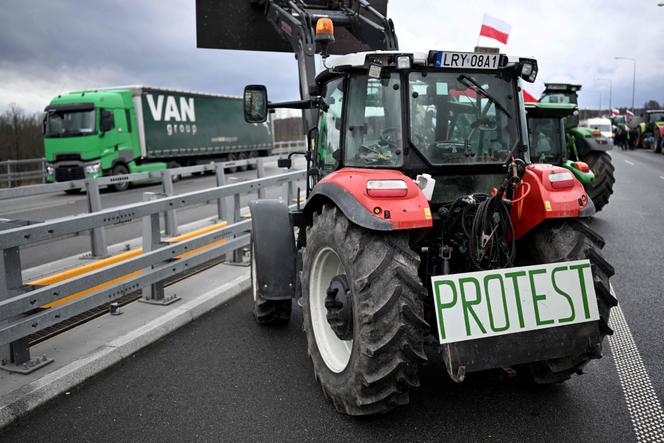


Farmers in Poland resumed a blockade of around 100 roads to the Ukrainian border on Tuesday, February 20, to protest against "uncontrolled" imports and demand a change to European Union agricultural policy.
Dozens of tractors traveled to Ryki, a town 100 kilometers southeast of the capital Warsaw, to block a major highway that leads to the Ukrainian border. Farmers hung red and white Polish flags on their tractors along with placards that said: "Stop the uncontrolled influx of Ukrainian goods" and "Farming is dying little by little."
Ukrainian President Volodymyr Zelensky said the blockade demonstrated an "erosion of solidarity" and could not be "considered normal or ordinary." Ukraine's state railway company on Tuesday denounced protesting Polish farmers who opened two Ukrainian freight cars and poured grain destined for Germany onto the tracks. The company said in a statement it was "outraged by such actions of Polish protesters and calls for an end to illegal actions."
For weeks Polish farmers have been blocking Ukrainian goods lorries from entering their country in anger at what they say is unfair competition from cheaper imports from Poland's war-torn neighbour and ally. Roads into EU member Poland have been an export lifeline for Ukraine, particularly its agriculture sector, after the 2022 Russian invasion complicated major trading routes through the Black Sea.
But the increase in road imports has angered Polish logistics companies and farmers, who say their Ukrainian rivals are undercutting them.
Across Europe, angry farmers have been protesting over rising costs, high fuel prices, bureaucracy and the environmental requirements in the European Union's Common Agricultural Policy (CAP) and its forthcoming Green Deal. The 27-nation EU last year eased restrictions that obliged farmers to keep part of their land fallow and this month extended that exemption under pressure from protests.
